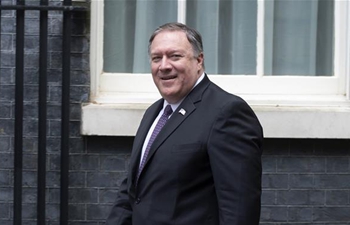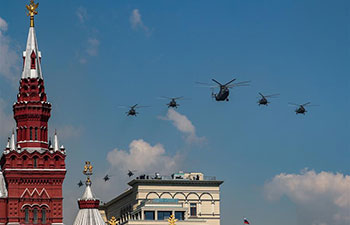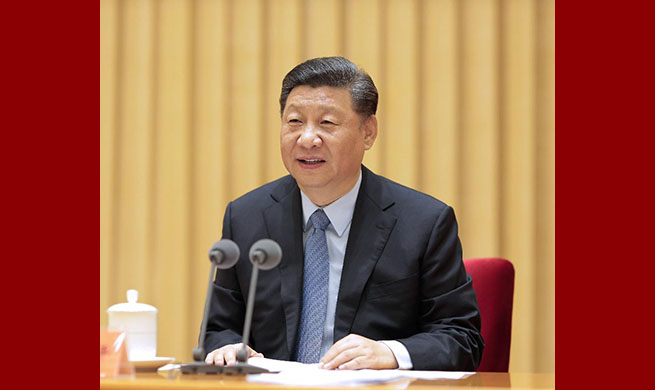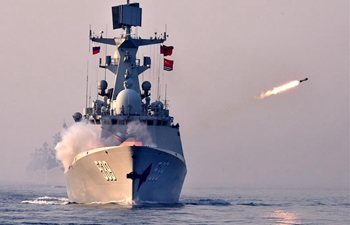by Xinhua writer Lu Jiafei
BEIJING, May 9 (Xinhua) -- One year after the United States withdrew from the 2015 Iran nuclear accord and took a string of hostile measures against Iran, Tehran responded in kind by announcing Wednesday that it would suspend some promises it made under the tension-defusing deal.
In addition to stepped-up sanctions, Washington has designated Iran's Islamic Revolution Guards Corps as a "foreign terrorist organization," vowed to counter the so-called "Iran threat," and announced the deployment of a U.S. aircraft carrier group and bombers to the region.
Such a tense scenario once troubled the Korean Peninsula one year ago when Washington and Pyongyang were locked in a war of words and the region seemed to be on a brink of a nuclear confrontation.
However, the two countries in later months decided to scale back their hostilities, and started to engage with each other. Though U.S. President Donald Trump and top leader of the Democratic People's Republic of Korea Kim Jong Un failed to reach an agreement during their second summit in Hanoi in February over differences on sequencing the steps to denuclearization, the two sides still pledged to keep talking to each other. As a result, hope for a lasting peace on the peninsula is still alive.
It serves as a reminder that engagement and dialogue, rather than confrontation, ought to be the steering wheel of international relations.
If history is any guide, engaging with adversaries diplomatically is not rewarding the other side. It creates an urgently needed opening for solving the crisis at hand.
During the 1970s, the U.S. administration adopted the foreign policy heavyweight Henry Kissinger's call for engaging with the Soviet Union to avoid conflict by creating commercial and diplomatic incentives.
Washington should be aware that the tactic of maximum pressure and brinkmanship will not always bring the other side to knees. Instead, it likely risks disastrous results once the rivals escalate the situation out of control.
In the case of the nuclear issue on the Korean Peninsula, a message of willingness to engage works more effectively than a military threat. Therefore, instead of heating up tensions with Tehran, hawks in Washington should pen them up. It needs to revisit the Iran nuclear deal and get back on the engagement track before it is too late to turn around.

















